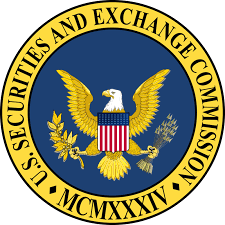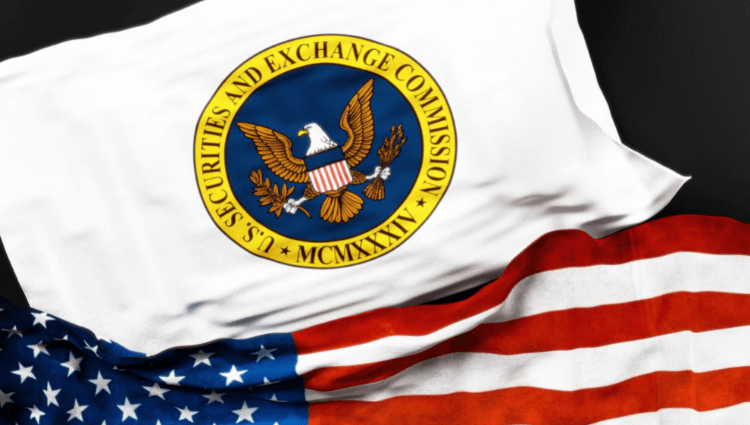Let’s suppose that you have gotten your startup off the ground. You had a great idea. You organized your startup as a corporation. Next, you executed a unanimous consent to issue stock and begin business. Then you approved the corporate bylaws. Finally, you obtained an Employer Identification Number from the IRS.
Now you are ready to begin raising money, at first from family and friends. Your uncle agreed to give you $2,500 for a convertible note giving him an option to buy stock in your company later. But what you probably don’t know is that the convertible note you gave your uncle is a security. Your startup must register with the SEC unless there is an exemption available. The three Regulation D exemptions are the ones issuers most often use.

What Are Securities?
Before we get to the exemptions, let’s talk about securities. Everyone knows that stocks and bonds are securities. But for years, no one knew exactly what what the definition of a security was. This was true even after Congress passed the Securities Act of 1933. Eventually, in 1946, the United States Supreme Court gave us a definition. In a case called SEC v. W.J. Howey Co., the United States Supreme Court explained the test for a security. “The test is whether the scheme involves an investment of money in a common enterprise with profits to come solely from the efforts of others.”
The “Howey test” cleared some things up, but questions remain. Let’s just say that a convertible note is a security. Why? Because its value depends on the value of the underlying stock. The value of that stock, in turn, depends solely on “the efforts of others.”
An Issuer Must Register All Securities with the SEC Unless There Is an Exemption
Under the federal securities laws, an issuer must register its securities with the SEC unless there is an exemption. This is true even if the issuer is a startup and has sold a security to only one person. That convertible note you gave to your uncle? It’s a security, so your startup must register with the SEC absent an exemption.
Three Regulation D Exemptions from Registration
The most common exemptions from registration are in Regulation D. This regulation is part of the rules the SEC made to allow the sale of securities without registration. The formal name of Regulation D is “Rules Governing the Limited Offer and Sale of Securities Without Registration Under the Securities Act of 1933.” These rules include three exceptions from registration. They are Rules 504, 506(b) and 506(c). Let’s take a look.
Rule 504 Regulation D Exemption: Up to $10 Million in 12 Months
Rule 504 of the Regulation D exemptions allows an issuer to offer securities for sale, without registration if it meets two conditions:
- the issuer plans to sell no more than $10 million worth of securities; and
- the issuer plans to sell them within a 12 month period.
But (of course!) there are exceptions to the exemption. Companies that must file reports under the Securities Exchange Act of 1934 may not use Rule 504. Neither may investment companies or “blank check” companies. Also, an issuer may ask the public for investments only in limited circumstances.
Rule 506(b) Regulation D Exemption: Accredited Investors & Sophisticated Investors
Rule 506 of the Regulation D exemptions contains two exemptions. The first one is in Rule 506(b). Under this rule, an issuer may sell securities to as many “accredited investors” who want to buy them. But the issuer may not offer or sell securities to more than thirty-five unaccredited investors. But the issuer can sell to unaccredited investors if they are “sophisticated.” The issuers must sell to these “sophisticated” investors within a ninety-day period. Further, the issuer may not ask for investments from the general public.
What is an Accredited Investor?
Rule 501 defines what an accredited investor is. The rule lists thirteen types of accredited investor. Some of the types contain several flavors, so there are even more than thirteen types. But here we are going to mention only the two types that a startup is most likely to encounter. They are:
- a person whose net worth, alone or with a spouse, exceeds $1 million, not counting the person’s primary residence; and
- a person who made at least $200,000 in the most recent two years; or at least $300,000 for a couple. The person must have a reasonable expectation that this income level will continue.
What is a Sophisticated Investor?
“Sophisticated” investors are those who have “such knowledge and experience in financial and business matters that he is capable of evaluating the merits and risks of the prospective investment.” This is either alone or with the investor’s spouse.
Rule 506(c) Regulation D Exemption: Accredited Investors Only
The second Rule 506 exemption is in Rule 506(c). This Regulation D exemption allows an issuer to sell as many stocks to as many people as the issuer wants if they are all accredited investors. Also, the issuer must take reasonable steps to make sure that all the investors are, in fact, accredited. The issuer may advertise for people to invest.
Bad Actor Disqualification for Rule 506 Exemptions
Both of the Regulation D exemptions in Rule 506 are subject to a further rule. This is the “bad actor” rule. Rule 506(d) is a long read. But its main point is that an issuer cannot use Rule 506 if one of its management team has a conviction for securities fraud in the past ten years. For the issuer itself, the period is within the past five years.
Fifteen Day Deadline to File D for Regulation D Exemptions
To claim a Regulation D exemption, an issuer must file a Form D with the SEC. There is a fifteen-day deadline to file the form. Many people think the fifteen-day deadline begins on the day of first sale of a security. And in fact, Rule 503 does say that the filing deadline is fifteen days “after the first sale of securities.”
But that’s not exactly correct because of the way the SEC defines “sale.” The SEC says that the deadline begins to run on the earlier of:
- the day the issuer sells the security; or
- the day “on which the first investor is irrevocably contractually committed to invest.”
Suppose that an issuer signs a binding contract with an investor to buy securities. Under the contract, the investor agreed to buy the securities thirty days later. The fifteen-day period began to run on the day the investor signed the contract. The Form D will be late if the issuer did not file it within that period.
Caveat
This is just an overview of the Regulation D exemptions. There are many details to obtaining an exemption. And there are many qualifications to the rules. You should consult an attorney with SEC experience when the time comes to file a Form D.

